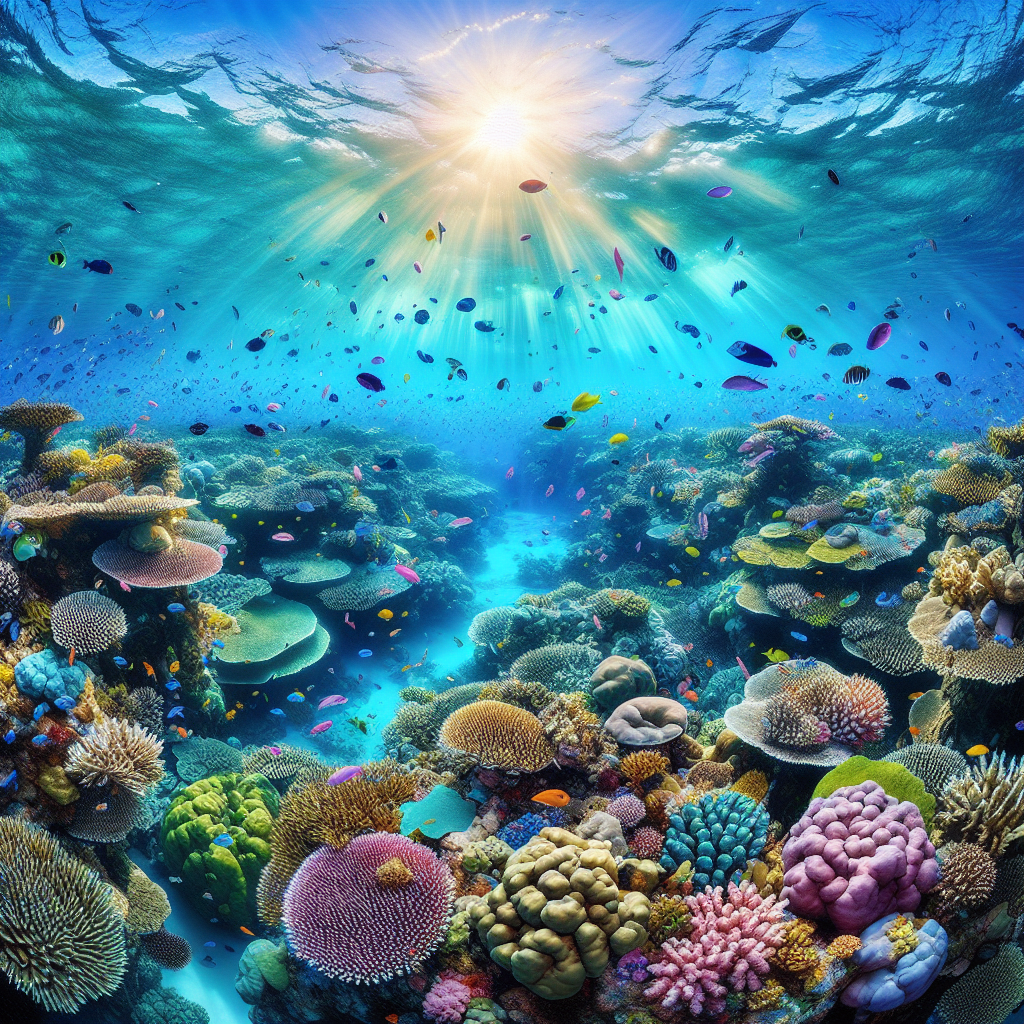
Discover the Majestic and Vulnerable Great Barrier Reef of Australia
Australia :
The Great Barrier Reef, located off the coast of Queensland, Australia, is the largest coral reef system in the world and one of the most iconic natural wonders on the planet. Stretching over 2,300 kilometers and covering an area of approximately 344,400 square kilometers, the Great Barrier Reef is a UNESCO World Heritage Site and is considered one of the Seven Natural Wonders of the World.
The reef is home to a wide variety of marine life, with over 1,500 species of fish, 411 types of hard coral, and countless other organisms including sharks, dolphins, turtles, and seabirds. It is a crucial habitat for many endangered species and plays a vital role in maintaining the biodiversity of the oceans.
The Great Barrier Reef is not only a haven for marine life, but also an important economic asset for Australia. The reef supports a vibrant tourism industry, attracting millions of visitors each year who come to dive, snorkel, and explore this unique ecosystem. Tourism related to the reef contributes billions of dollars to the Australian economy annually and provides employment for thousands of people in the region.
In recent years, however, the Great Barrier Reef has faced a number of threats that have raised concerns about its long-term survival. Climate change, pollution, and overfishing are all putting pressure on this fragile ecosystem, leading to coral bleaching, habitat destruction, and a decline in fish populations.
One of the biggest threats to the Great Barrier Reef is climate change. As sea temperatures rise due to global warming, corals are becoming stressed and are more susceptible to bleaching. Coral bleaching occurs when the coral expels the algae living in its tissues, causing it to turn white and eventually die. In recent years, mass bleaching events have become more frequent and severe, leading to widespread damage to the reef.
Pollution is another major threat to the Great Barrier Reef. Runoff from agriculture, mining, and urban development can introduce harmful chemicals and nutrients into the water, leading to algal blooms and a decline in water quality. These pollutants can suffocate corals, disrupt the delicate balance of the ecosystem, and harm marine life.
Overfishing is also a concern for the Great Barrier Reef. Many species of fish rely on the reef for food and shelter, and overfishing can disrupt the balance of the ecosystem. Illegal fishing practices, such as dynamite fishing and cyanide poisoning, can also cause significant damage to the reef and its inhabitants.
In response to these threats, the Australian government and other organizations have taken steps to protect and preserve the Great Barrier Reef. Efforts have been made to reduce greenhouse gas emissions, improve water quality, and implement sustainable fishing practices. The Great Barrier Reef Marine Park Authority, which manages the reef, has implemented a number of conservation measures to ensure the long-term health of the ecosystem.
Tourists also play an important role in protecting the Great Barrier Reef. Responsible tourism practices, such as following guidelines for diving and snorkeling, choosing eco-friendly tour operators, and supporting conservation efforts, can help minimize the impact of visitors on the reef.
Despite the challenges facing the Great Barrier Reef, there is still hope for its future. Conservation efforts are making a difference, and there are signs of recovery in some areas of the reef. By working together to address the threats to this unique ecosystem, we can help ensure that future generations will be able to enjoy the beauty and biodiversity of the Great Barrier Reef.
Visiting the Great Barrier Reef is an unforgettable experience. Whether you’re exploring the coral gardens, swimming with tropical fish, or admiring the stunning underwater landscapes, the reef offers a truly magical and awe-inspiring adventure. Protecting this natural wonder is not only important for the marine life that calls it home, but also for future generations who deserve the chance to witness its beauty and wonder. Let’s come together to preserve and protect the Great Barrier Reef for years to come.
The Ultimate Guide to Smart Travel: Tips & Tricks

